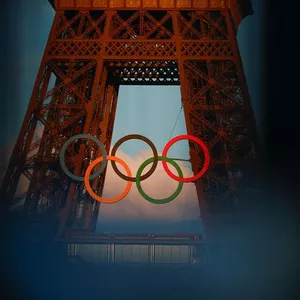Security, Transport: What the Paris Olympics Cost French Public Finances
By Lisa F. Keith

As the dust settles from the Paris 2024 Summer Olympics, attention is now turning to the financial aftermath of the grand global event — particularly the impact on French public finances. While the Games were hailed as a logistical and cultural success, newly released figures show that security, transportation, and infrastructure investments have come at a significant cost to taxpayers. From the start, organizers promised a “responsible Olympics,” with sustainability and budgetary discipline at the heart of their message. However, the reality of hosting one of the world’s largest sporting events has led to public spending beyond initial expectations, driven largely by security measures and transportation upgrades. Security alone accounted for one of the most substantial expenses. Given heightened terrorist threats and the need to ensure the safety of millions of spectators, athletes, and officials, the French government deployed tens of thousands of police officers, gendarmes, soldiers, and private agents. In total, more than €1.5 billion was spent on security operations — a figure that includes surveillance systems, crowd-control infrastructure, facial recognition tech pilots, cyber defense, and overtime payments for law enforcement. Officials insist this was a necessary price for public safety. Interior Minister Gérald Darmanin defended the cost, stating that “zero incidents” was the priority, and that France had to demonstrate its capacity to host high-stakes international events securely. The government also emphasized that many of these investments — particularly in surveillance technology — would have long-term value, being repurposed for future national events and general policing. Transportation was the second major pillar of public spending. While Paris already boasts a strong urban transit network, significant upgrades were needed to handle the Olympic load and improve access to new venues. This included modernizing metro lines, expanding tram services, improving accessibility for people with disabilities, and finishing critical connections to suburban areas where Olympic events were held. The estimated cost for Olympic-related transport improvements exceeded €3 billion, much of it funded by public money from the state and the Île-de-France regional authority. Supporters of the investments argue they were not just for the Games but part of a long-overdue urban mobility overhaul that would benefit residents for decades. However, critics question the timing and scope of the expenditures. Several watchdog groups, including the Cour des Comptes (France’s national audit office), have pointed to cost overruns and “questionable prioritization” of certain projects. In particular, delays and last-minute contracts led to higher-than-expected bills in the months leading up to the event. Beyond security and transport, other publicly funded areas included housing for athletes (later to be converted into social housing), public health measures, communications infrastructure, and environmental mitigation efforts. When all public spending is accounted for, estimates place the total taxpayer contribution at around €6.8 billion — a figure higher than early predictions, though still below the cost of previous Olympics like London 2012 or Rio 2016. Officials from the Paris 2024 Organizing Committee are quick to point out that the majority of the overall Olympic budget — estimated at €9.4 billion — was funded by private sponsors, ticket sales, and the International Olympic Committee (IOC). Public funds, they argue, were largely targeted toward long-term infrastructure, not operational costs. Still, opposition leaders and some members of civil society argue the line between Olympic necessity and political opportunism was sometimes blurred. “In a country struggling with hospital shortages and school funding gaps,” one left-wing MP noted, “spending billions on a sporting spectacle sends the wrong message.” Environmental groups have also weighed in, stating that despite promises of sustainability, many of the construction projects required significant material and energy use, and some temporary installations may not have a long-term ecological purpose. On the other hand, supporters of the Games counter these criticisms with broader economic and civic arguments. Hosting the Olympics boosted France’s global visibility, stimulated short-term employment, and brought tourism revenue to Paris and surrounding regions. The Games also served as a catalyst for urban renewal, particularly in Seine-Saint-Denis, one of France’s poorest departments, which saw new housing, green spaces, and public services added as part of the Olympic legacy. French President Emmanuel Macron has argued that the Games were an investment in national pride and global stature, and that their legacy will be felt for decades. “We’ve shown that France can deliver. The cost is real, but so is the impact,” he stated in a post-Games address. Now, with the events over, a more detailed audit of Olympic spending is underway. The government has pledged transparency and accountability, promising to publish final figures and submit reports to parliamentary oversight committees. Already, some reports suggest that while overall budgetary discipline was stronger than in past host countries, there were still significant overruns in specific categories, particularly private security contracting and emergency infrastructure adjustments. For the average citizen, however, the debate is far from numbers alone. Many Parisians are asking whether their lives have been improved by the Olympics — or whether the disruption, construction noise, rent hikes, and long commutes were too high a price. In lower-income neighborhoods, some residents question whether the promised social benefits — especially in terms of affordable housing — will actually materialize in the coming years. Despite these questions, one thing is clear: the Paris Olympics were not free, and the burden was shouldered, in part, by public finances. Whether that cost will be remembered as a wise investment or a miscalculation remains to be seen — a debate likely to shape political discourse well into the next election cycle.